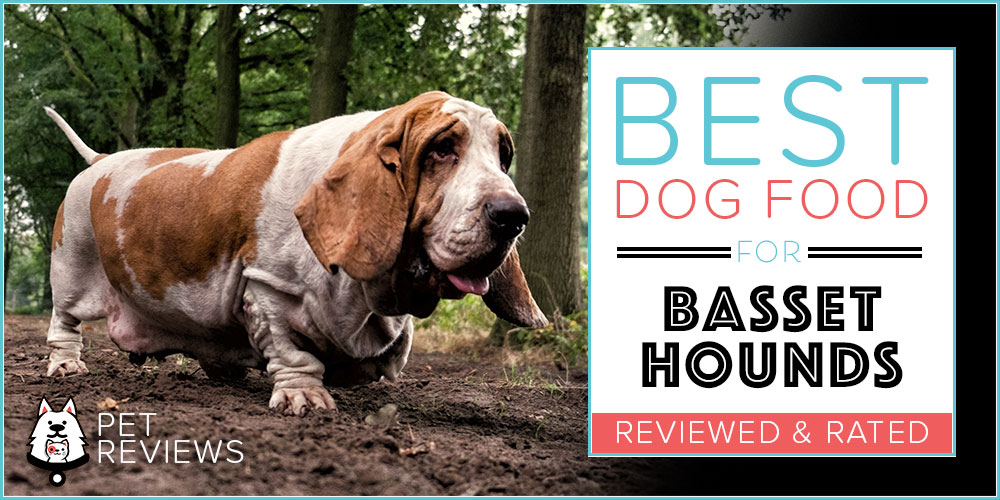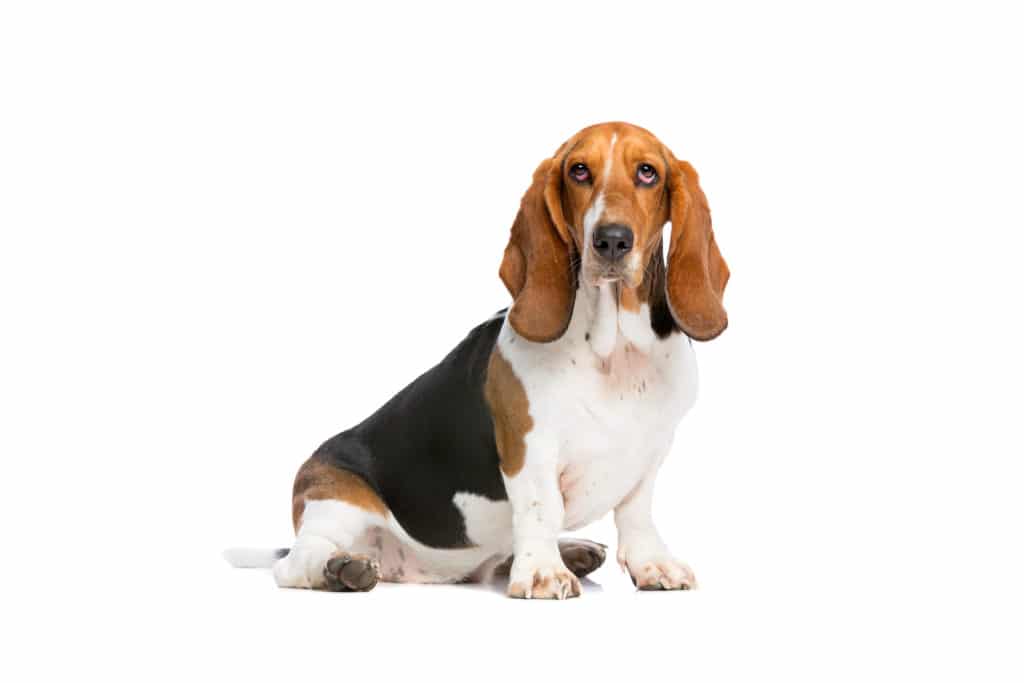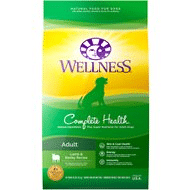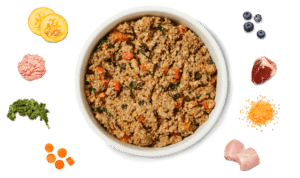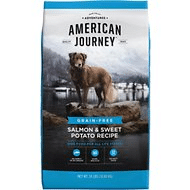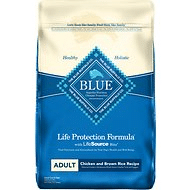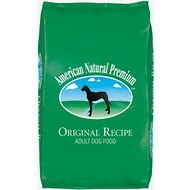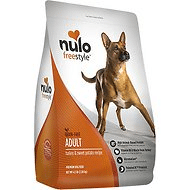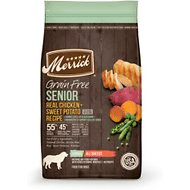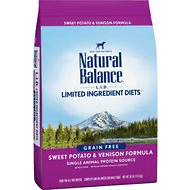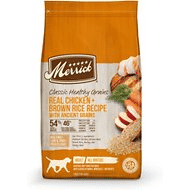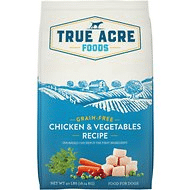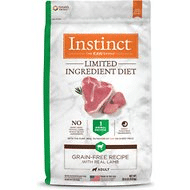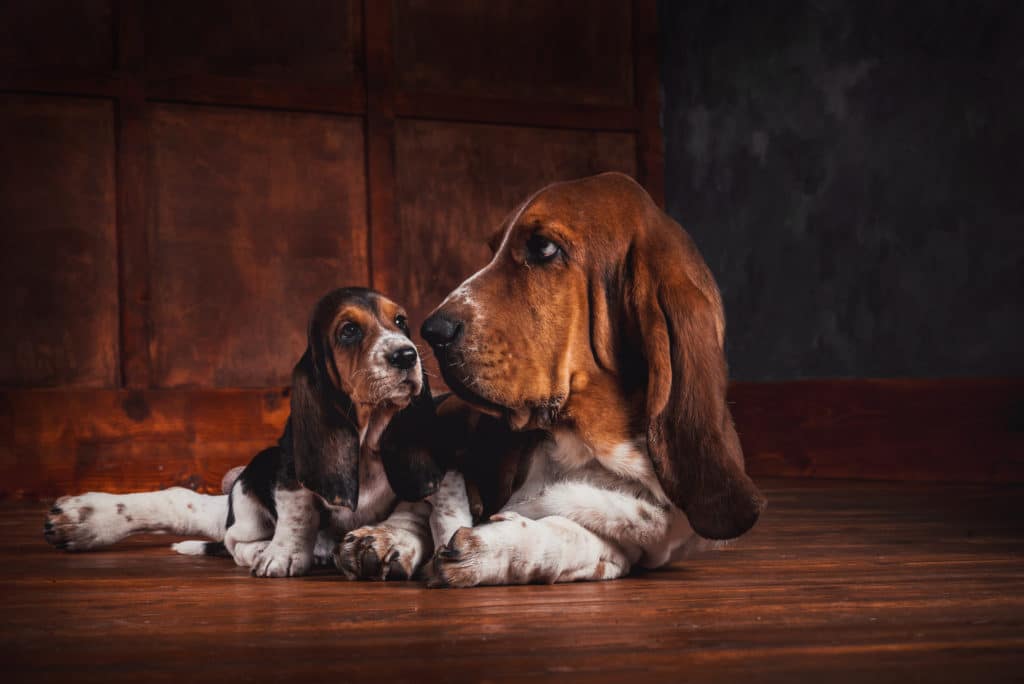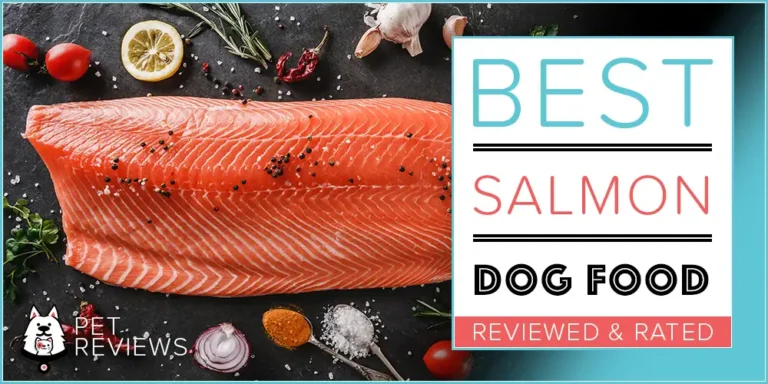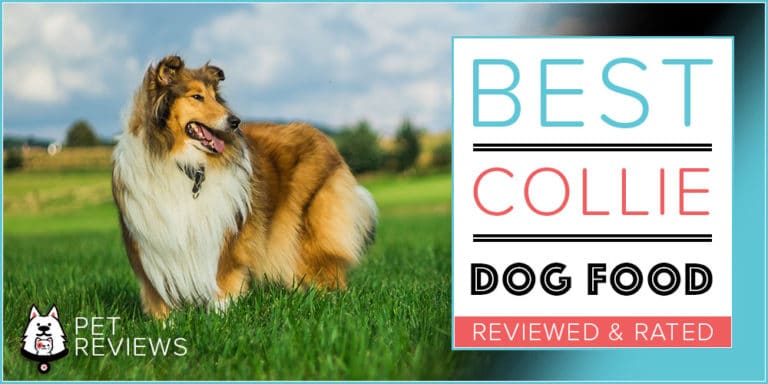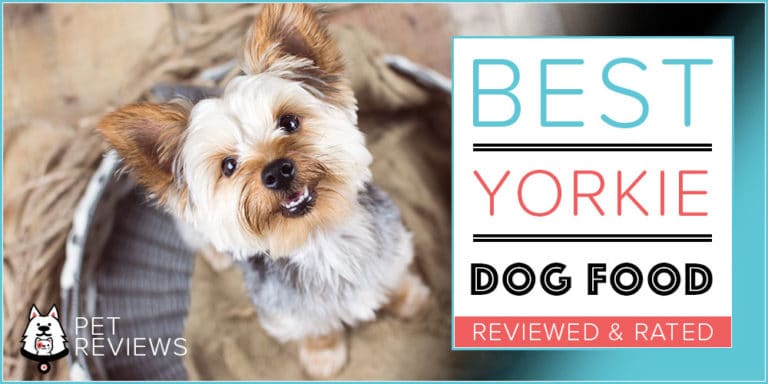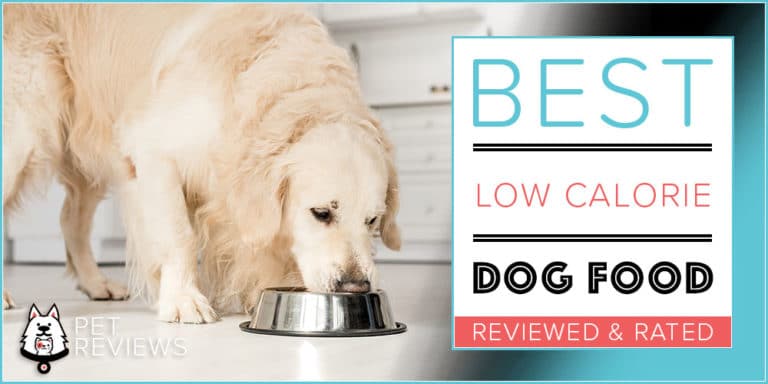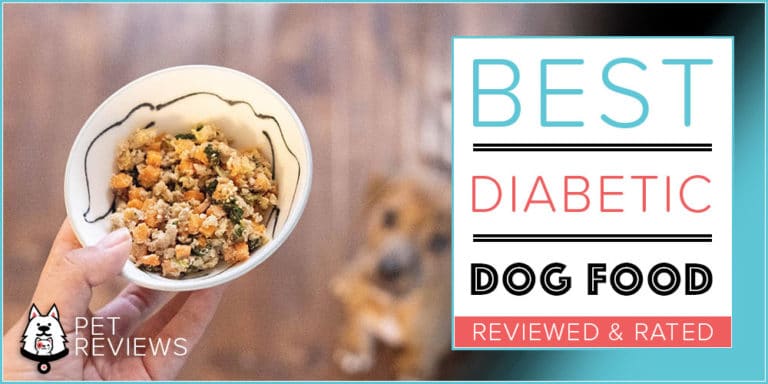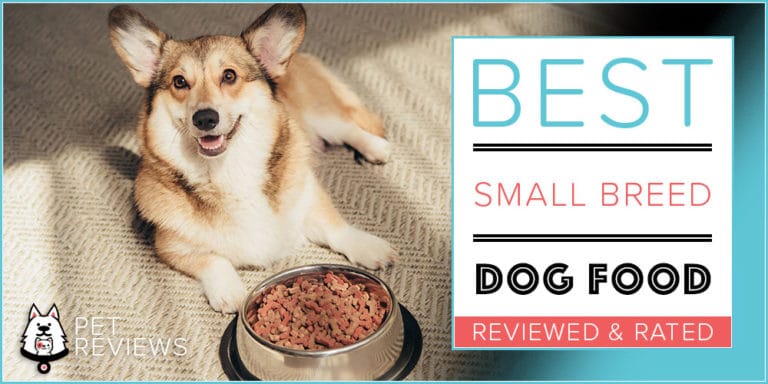11 Best Dog Foods for Basset Hounds in 2024
Quick Guide
- What is the Best Dog Food for a Basset Hound?
- 5 Key Nutritional Needs of a Basset Hound Diet
- 6 Special Dietary and Nutritional Considerations of Basset Hounds
- Basset Hound Feeding Schedule
- Overall Best Food for Basset Hounds
- 10 More Top-Rated Dog Foods for Basset Hounds
- 2. Fresh/Super Premium: Ollie
- 3. Most Popular: American Journey Grain-Free Dog Food
- 4. Best Value: Blue Buffalo Life Protection Formula
- 5. Pea Free: American Natural Premium Original Recipe Dry Dog Food
- 6. Best for Puppies: Nulo Freestyle Turkey and Sweet Potato Recipe
- 7. Best for Seniors: Merrick Senior Chicken + Sweet Potato Dry Dog Food
- 8. Natural Balance LID Sweet Potato and Venison Dry Dog Food
- 9. Merrick Classic Chicken + Brown Rice with Ancient Grains
- 10. True Acre Foods Chicken and Vegetable Dry Dog Food
- 11. Instinct Limited Ingredient Diet
- Our 2024 Basset Hound Feeding Guide
- Conclusion
Their distinct look is impossible to miss with their large, droopy face and long, low body type. Although they average just 14 inches high, they’re strong, hefty dogs who can weigh 60 pounds or more. The reason for their one-of-a-kind shape is because they were originally bred towards achondroplasia, a type of genetic dwarfism.
Bassets are often far from active dogs. They’re slow, sturdy, and generally prefer lying around instead of taking a walk or playing fetch. Natural pack animals, they’d rather sit next to you and the other pets in the household than go off and explore on their own. However, their unique body shape and lifestyle of relatively low mobility do create special nutritional needs.
The type of food you give your basset hound has a tremendous effect on their health and happiness throughout their entire life. But don’t worry if you’re not an expert on canine nutrition. Our complete guide to basset hound dog food features top product recommendations, breed-specific nutrition info, feeding tips, and everything else you need to know.
Both you and your basset will love what you find! Let’s get started
What is the Best Dog Food for a Basset Hound?
- Best Overall: Wellness Complete Health Adult Lamb & Barley Recipe Dry Dog Food
- Fresh/Super Premium: Ollie Fresh Dog Food
- Most Popular: American Journey Grain-Free Dog Food
- Best Value: Blue Buffalo Life Protection Formula
- Pea Free: American Natural Premium Original Recipe Dry Dog Food
- Best for Puppies: Nulo Freestyle Turkey and Sweet Potato Recipe
- Best for Seniors: Merrick Senior Chicken + Sweet Potato Dry Dog Food
- Natural Balance LID Sweet Potato and Venison Dry Dog Food
- Merrick Classic Chicken + Brown Rice with Ancient Grains
- True Acre Foods Chicken and Vegetable Dry Dog Food
- Instinct Limited Ingredient Diet
5 Key Nutritional Needs of a Basset Hound Diet
Although they average only slightly more than a foot tall, bassets are considered a large-breed dog. So, despite their short stature, they have the build of a much bigger dog and can weigh 60 pounds or more. Their unique genetic makeup requires specific nutritional needs to help keep them healthy:
- Protein: Protein is the single most important ingredient in dog food. It promotes healthy lean muscle mass and tissues. You want food with primarily animal-based proteins such as meat, fish, and eggs. Plant-based proteins, such as peas and alfalfa, don’t provide suitable nutrition.
- Fats: Healthy fats are the primary source of energy for basset hounds. Plus, fats boost immune system function while improving skin and coat health. Look for food with animal-based fats, such as chicken fat or fish oil, instead of plant-based fat sources. Additionally, the food should provide both omega-3 and omega-6 fatty acids (which help prevent a variety of health issues).
- Carbohydrates: Carbs aren’t as important as fats or protein, but they do provide dietary fiber for healthy digestion. Plus, they add a varied selection of vitamins and minerals. Look for digestible carbohydrate sources such as whole oats, brown rice, and, to a lesser extent, fruits and veggies.
- Vitamins: Bassets need a daily intake of a variety of vitamins and minerals, just like people need. However, high-quality food brands should have the appropriate vitamins required. Although some supplements do have benefits, especially for older dogs, never give them to your dog unless specifically instructed to by your vet.
- Meals: Meat meals provide an additional source of highly concentrated protein. As with protein, you want animal-based meals such as a chicken meal. However, while meal is an important component, it shouldn’t be the primary ingredient. Instead, make sure the most plentiful ingredient is pure protein such as chicken, fish, or beef.
While the general nutritional needs play a key role in keeping your basset hound happy and healthy, always consult with your vet for specific recommendations. Dietary requirements change based on your pet’s age, genetics, activity level, and other factors.
6 Special Dietary and Nutritional Considerations of Basset Hounds
As you might expect, based on their appearance, basset hounds are unlike other dog breeds. Unfortunately, that means they pose an increased risk of certain food-related health issues. While usually, these issues are minor and easily controlled, it’s important to understand what to watch for:
Ear Infections
Although their long ears are adorable, they also increase the likelihood of ear infections. To reduce infections, keep your dog’s ear clean and dry. However, frequent ear infections are also potentially the result of an imbalance in your dog’s body chemistry. Specifically, they’re often caused by a diet too high in carbohydrates.
Activity Level
As basset hound owners already know, the breed isn’t particularly active. They’d much rather sit around and relax than go for a long walk. Low activity levels mean they’re prone to obesity. Pay attention to the caloric level of the food. Bassets need far fewer calories than other breeds of similar sizes.
Skin Conditions
Bassets are prone to redness, itchiness, and other skin irritations. Food allergies are a frequent cause, so if your dog displays symptoms, consider switching his food to something low in carbohydrates or that has a unique protein, such as venison. Dogs can frequently develop allergies to proteins they’ve eaten without issue for years. Also, check with your vet to rule out hypothyroidism or autoimmune disorders.
Thyroid Problems
Because bassets are already prone to weight gain, it’s easy to overlook weight gain as a potentially serious medical issue. However, rapid weight gain, along with hair loss and lethargy, can indicate a thyroid problem. Always check with your vet, especially if your dog is gaining weight, but the amount and type of food he eats haven’t changed.
Treating thyroid problems typically involves implementing a soy-free diet, as soy often interferes with the effectiveness of thyroid medication. Fortunately, with proper diet and medication, a basset with a thyroid issue can usually live a normal, healthy life.
Bloat
Bloat is a serious, potentially fatal condition caused by a sudden build-up of gas in a dog’s abdomen. Basset hounds have an increased risk of bloat due to their large, deep chests. To reduce the risk of bloat, feed your dog two or three small meals throughout the day instead of one. Additionally, limit water intake and exercise immediately after mealtime.
Create a stable, calm environment for your dog during feeding time. Slow feed bowls and elevated bowls both slow your dog down when eating, which helps prevent him from swallowing large amounts of air. Also, feed him away from other dogs, as he’ll likely feel compelled to eat fast if he feels another animal might try to take his meal.
Grains
Grain-free dog food is increasingly popular, although experts don’t agree on its potential benefits. If your dog displays itchiness or frequent ear infections, switching to a grain-free food is an early step in identifying potential allergens. However, barring allergies, your dog doesn’t especially need grain-free food, as long as it meets the other nutritional requirements above.
Basset Hound Feeding Schedule
How often and how much should I feed my basset hound?
| Basset Hound Weight | Amount of Dry Food per Day |
| 50 lbs | 2 cups |
| 60 lbs | 3 cups |
| 70 lbs | 4 cups |
Note: These are general guidelines for an average basset. You’ll need to adjust for specific factors such as the type of food and the dog’s general activity level. The instructions on the bag will provide additional details to help point you in the right direction.
Determining the right amount of food to give your basset hound is often tricky. More than most breeds, you’ll want to consult with your vet for a recommendation specific to your dog.
The issue is that basset hounds are classified as large dogs, but they typically live a sedentary lifestyle. You can’t feed them the same amount as, for example, a German Shepherd. Most conventional feeding instructions for large dogs require modification.
When to Feed Your Basset Hound
Another important thing to know is that basset hounds must eat at least twice a day. The feeding recommendations above are for the entire day. You’ll need to split the amount into equal portions. Most owners feed their bassets in the morning and evening.
As we talked about earlier, basset hounds are prone to bloat. You reduce the risk of bloat occurring by feeding your dog smaller portions throughout the day. The more he eats each day in total, the more meal times he needs. As a general rule, anything above four cups of food a day in total requires three meals or more.
Also, don’t allow your basset to free feed. Free feeding is when you leave food out for your dog to eat whenever he likes. However, basset hounds typically eat too much when left in charge of their own feeding schedule. Free feeding increases the risk of obesity and bloat.
Feeding Basset Hound Puppies
Basset puppies require a different feeding schedule. Because they’re growing, they need more frequent feeding than adults. For the first three months, they should eat four times a day. From 12 months to six months, feed them three times daily. After six months, they can eat on an adult schedule, which is twice a day.
Follow the manufacturer’s guidelines for specific quantity recommendations. In most cases, you’ll feed your puppy small amounts at each feeding. Follow the same guidelines as with adults to prevent bloat. Feed the dog in a calm, quiet location away from children and animals.
Overall Best Food for Basset Hounds
| Our 2024 Picks: Best Basset Hound Dog Food | |||
Wellness Complete Health Adult Lamb & Barley Recipe Dry Dog Food
|
CHECK PRICE | ||
Ollie
|
CHECK PRICE | ||
American Journey Grain-Free Dog Food
|
CHECK PRICE | ||
Blue Buffalo Life Protection Formula
|
CHECK PRICE | ||
American Natural Premium Original Recipe Dry Dog Food
|
CHECK PRICE | ||
Nulo Freestyle Turkey and Sweet Potato Recipe
|
CHECK PRICE | ||
Merrick Senior Chicken + Sweet Potato Dry Dog Food
|
CHECK PRICE | ||
Natural Balance LID Sweet Potato and Venison Dry Dog Food
|
CHECK PRICE | ||
Merrick Classic Chicken + Brown Rice with Ancient Grains
|
CHECK PRICE | ||
True Acre Foods Chicken and Vegetable Dry Dog Food
|
CHECK PRICE | ||
Instinct Limited Ingredient Diet
|
CHECK PRICE | ||
Our Top Pick: Wellness Complete Health Adult Lamb & Barley Recipe Dry Dog Food
Wellness Complete Health provides both a tasty meal for your dog and peace of mind for you, knowing that all of his nutritional needs are met. The main source of protein is lamb, which is an excellent meat-based source of energy. Additionally, it has omega-3 and omega-6 fatty acids plus a robust blend of fruits, vegetables, and Yucca Schidigera to help promote healthy digestion.
What’s not inside the bag is impressive, too. You won’t find an overabundance of carbs, making this a good choice if your dog frequently has ear or skin issues. Also, it contains no soy, corn, or wheat, which is helpful if your dog has a thyroid issue.
Although you’ll find quite a few nutritious, high-quality foods for bassets, what makes Wellness Complete stand out from the crowd is that it’s useful for identifying and helping to treat breed-specific issues like itchy skin, poor digestion, and thyroid problems.
10 More Top-Rated Dog Foods for Basset Hounds
If our top recommendation doesn’t seem like a good choice for your pup, here are 10 other options you’ll want to check out:
2. Fresh/Super Premium: Ollie
Key Features: While dry dog food is convenient, fresh food offers several advantages, including an appealing taste and customization options. Although the ordering process is sometimes a bit more complicated, as you have to order directly from the manufacturer for delivery to your house, many pet parents prefer the fresh option.
Ollie is a popular choice in the fresh food market. They have four recipe options: beef, chicken, lamb, or turkey. It’s easy to personalize your basset hound’s meal plan, allowing you (with the help of your vet) to create custom options based on relevant factors such as his age, weight, activity level, and potential allergies.
All meals are made with human-grade ingredients, which means you can safely eat them yourself if you want to. Although human-grade ingredients aren’t strictly necessary for a dog’s health, they give many owners peace of mind knowing their feeding their dog the highest quality meats and veggies.
Pros:
- Human-grade ingredients are the freshest possible option
- Meals are customized to fit your dog’s specific needs
- Food is delivered directly to your home
Cons:
- Product requires a subscription plan Only available directly from the manufacturer
- relatively high cost compared to dry food
3. Most Popular: American Journey Grain-Free Dog Food
Key Features: It’s easy to see why American Journey is a favorite among people and dogs alike. Your basset will love the taste because it’s made with deboned chicken, sweet potatoes, chickpeas, and more. You’ll love how it provides a complete lineup of vitamins, minerals, fatty acids, and other necessary nutrients. Regular use helps promote the healthy growth of skin, hair, eyes, and even brain function.
Keep in mind this is a grain-free formula. Additionally, it’s free from corn, wheat, and soy. While a 100% grain-free diet is ideal for dogs with specific allergies or digestion issues, it’s not required for a healthy, adult dog. Some experts recommend a small amount of grain to aid in digestion (although this specific formula has digestive-enhancing carrots, kelp, and blueberries).
Pros:
- Popular, highly-rated choice suitable for bassets and most adult dogs
- Includes a full range of necessary amino acids and essential fats
- The recipe contains chicken, sweet potatoes, chickpeas, carrots, and more
Cons:
- The grain-free formula isn’t necessary for most dogs and might cause digestion issues
- The formula can increase weight gain
- Taste of blueberries, potatoes, and other veggies doesn’t appeal to every dog’s palette
4. Best Value: Blue Buffalo Life Protection Formula
Key Features: A chicken and rice-based formula designed to deliver the nutrition large dogs need. The blend of ingredients includes deboned chicken, whole grain brown rice, and a medley of garden fruits and vegetables. Additionally, it contains no by-product meals, corn, wheat, or soy, all of which can impede proper digestion.
It’s ideal for basset hounds because it’s formulated to help keep your dog mobile and healthy as he ages. Glucosamine and chondroitin help improve joint health, while omega-3 and omega-6 fatty acids help keep your dog’s coat fully, shiny, and itch-free. Also, the food has a Super 7 package of antioxidants and L-Carnitine to provide energy and help boost lean muscle growth.
Pros:
- Deboned chicken is the main ingredient
- Includes no by-product meals
- Helps maintain joint health
- Specially formulated for large dogs like bassets
Cons:
- 15mm kibble is large
- Might cause excessive gas
- Strong fish odor
5. Pea Free: American Natural Premium Original Recipe Dry Dog Food
Key Features: Our favorite pea-free food for bassets includes a nutritious mix of multiple proteins and complex carbohydrates. It delivers long-lasting energy in a formula that’s easy for dogs to digest. Instead of a single source of protein, it’s formulated with a blend of chicken, pork, eggs, and fish.
Peas don’t provide tons of nutrition for canines, but they’re often used as filler by manufacturers. Instead of peas, American Natural uses a far healthier mix of brown rice, barley, and oat flour. Additionally, it’s one of the few foods available that adds probiotics to help improve gastrointestinal health.
Pros:
- Formulated with probiotics for easy digestion
- Contains no peas, corn, wheat, or soy
- The protein source is a blend of chicken, pork, fish, and eggs
Cons:
- The mix of multiple proteins might irritate dogs with allergies
- Food has a strong odor
- Non-resealable bag doesn’t keep food fresh over long periods
6. Best for Puppies: Nulo Freestyle Turkey and Sweet Potato Recipe
Key Features: An easy-to-eat kibble that provides Basset puppies with the nutrition they need to grow up big and strong. It’s a grain-free formula that derives 80% of its protein from real meat. Additionally, it provides all necessary amino acids and DHA fatty acids.
It’s a good choice for basset hound puppies specifically because it has a guaranteed calcium level. Due to the basset’s unique, stocky size, they need strong bones to stay healthy and mobile throughout their life. Additionally, DHA fatty acids help boost brain and eye health.
Note that Nulo freestyle is a 100% grain-free food. Expert opinions are mixed about the effectiveness of grain-free formulas, although they’re often used for pets with allergies. Consult with your vet before giving your puppy grain-free food just to make sure doing so is safe and healthy.
Pros:
- Small, easy-to-chew kibble is ideal for puppies
- Real meat provides 80% of the food’s protein
- Helps develop strong, healthy bones
Cons:
- 100% grain-free food isn’t appropriate for all dogs
- Does contain some peas used as filler
7. Best for Seniors: Merrick Senior Chicken + Sweet Potato Dry Dog Food
Key Features: Formulated for the specific needs of senior dogs, Merrick’s Senior Dry Dog Food contains glucosamine and chondroitin to help maintain healthy hips and joints. Considering senior bassets frequently develop problems in those areas, this food can help them stay mobile as they age.
The main ingredient is deboned chicken, which provides all the amino acids your dog needs to maintain healthy lean muscle growth. While this is important in dogs all ages, it’s especially necessary for senior dogs, as muscle mass tends to decrease.
Another notable benefit to this food is that you know where it came from and how it was made. Merrick cooks the kibble in small batches to ensure strict quality control. Also, the food is made in Merrick’s Texas facility using locally-sourced ingredients.
Pros:
- Developed for dogs ages nine and older
- Formulated to improve hip and joint function
- The primary ingredient is deboned chicken
- Food is made in Texas with local sourcing
Cons:
- Bag doesn’t seal, increasing the risk of turning stale
- Size of the bag recently dropped with no change in price
8. Natural Balance LID Sweet Potato and Venison Dry Dog Food
Key Features: If your dog suffers from food allergies, Natural Balance Limited Ingredient Diet is a safe and effective way to give him the nutrients he needs. It has a limited ingredient list featuring venison and sweet potatoes.
As discussed in detail below, most dog food allergens are proteins, not grains. A dog can eat a type of protein without issue for years but suddenly develop an allergy seemingly overnight. To treat the allergy, you’ll need to feed him a protein he’s never had before, which is why Natural Balance’s venison-based formula is a good choice.
Don’t worry about the limited ingredients because no nutrition is lost. Venison provides all necessary amino acids for energy and lean muscle development. With minimal carbohydrates, it helps reduce the likelihood of ear infections.
Pros:
- Limited ingredient list features venison and sweet potatoes
- Ideals for dogs with food allergies and digestive issues
- Provides all necessary amino acids for energy
Cons:
- Not effective if your dog is already allergic to venison
- Recent formula changes might not appeal to dogs used to the original blend
9. Merrick Classic Chicken + Brown Rice with Ancient Grains
Key Features: Merrick’s Classic formula is a favorite among basset hounds because it boosts skin, coat, and joint health, which are all issues many bassets develop.
Ingredients include real chicken, whole grains, and ancient grains. The two types of grains aren’t filler; they provide a valuable digestion aid. Dogs can easily absorb the nutrients and amino acids they need.
Additionally, the formula contains the essential fatty acids omega-3 and omega-6, plus glucosamine and chondroitin. They help boost joint health and lean muscle growth to help prevent mobility issues. Also, they help keep your dog’s coat shiny and his skin itch-free.
Pros:
- The main ingredient is an animal-based protein
- Includes whole and ancient grains for easy digestion
- Helps improve the health of joints, skin, and hair
Cons:
- Formula recently underwent changes to shape and texture of the kibble
- Bag size recently shrank by five pounds with no change in price
10. True Acre Foods Chicken and Vegetable Dry Dog Food
Key Features: The True Acre brand is an excellent choice for healthy, fresh ingredients with no artificial extras like artificial colors and flavors. The main ingredient is deboned chicken raised in the US, plus a medley of peas, carrots, and other vegetables.
Don’t let the sparse ingredient list fool you; this formula is packed with nutrients. It provides all necessary amino acids plus omega-3 and omega-6 fatty acids. Plus, it contains no grains, corn, or wheat, which can sometimes aggravate basset ear issues.
Overall, it boosts immune system function and overall mobility, making it a great choice for adult basset hounds, especially those with pre-existing food allergies.
Pros:
- Contains protein and veggies with minimal extra ingredients
- Provides all amino acids and fatty acids necessary for basset health
- Helps boost immune system efficiency
- Helps increase mobility
Cons:
- Unpleasant colors and texture (although your dog might not mind)
- Contains soybean meal and beet pulp, which some might consider additives
- Our 2024 Basset Hound Feeding Guide
11. Instinct Limited Ingredient Diet
Key Features: Diagnosing your dog’s food allergy is often difficult, so if you need a second option for a limited ingredient food, go with Instinct’s Limited Ingredient Diet. It features a short ingredient list with a single protein and vegetables.
You don’t want fillers in your own meals, so why should they be in your dog’s food? The main protein is grass-fed lamb. Not only is lamb much easier to digest than many other common proteins, but it also contains all the essential amino acids dogs need for good health.
Aside from limited ingredients, the food is notable for what it doesn’t contain. You’ll find no grains, dairy, eggs, peas, artificial colors, or preservatives. It’s a simple food made in the USA with high-quality ingredients.
Pros:
- Helps identify the source of protein allergies in dogs
- Contains single protein and vegetable
- Main ingredient is easy-to-digest lamb
- Contains no artificial ingredients or fillers
Cons:
- Doesn’t typically help dogs with yeast allergies
- Switching dogs diet can temporarily increase GI issues
Our 2024 Basset Hound Feeding Guide
Frequently Asked Questions
With so many different options, finding the right dog food for your hound can feel confusing. Here are the answers to common questions about feeding your basset buddy:
Is Grain-Free Dog Food Good for Basset Hounds?
Grain-free dog foods usually aren’t necessary for healthy adults. The main reason your dog would need a grain-free diet is if he suffers from grain allergies, but that is far rarer than protein allergies.
A small amount of grains in dog food aids digestion. As long as the primary ingredient in the food is an animal protein, you don’t have to worry about it being completely grain-free.
Do Basset Hounds Have Allergies?
Sometimes. A diet with excess carbs can contribute to dermatitis and ear infections in basset hounds, although they’re also prone to those conditions regardless of what they eat.
Additionally, sometimes bassets, as with all breeds, can develop food allergies over time. Typically, they become allergic to proteins, such as chicken or beef, that they’ve eaten without a problem for years. If that occurs, the most common treatment is switching to a food with a novel protein such as fish, bison, or venison.
When Should I Switch My Basset Hound from Puppy to Adult Food?
Switch to adult dog food when your dog is fully mature. On average, basset hounds enter adulthood between 18 months to three years of age. Your vet can help you determine exactly when to switch your dog’s diet.
How Much Activity Does My Basset Hound Require?
While some bassets like to run and play, many others live relatively sedentary lives. If your dog isn’t naturally active, you’ll want to take him on brief daily walks. However, the biggest concern is his calorie intake. If he leads a relatively sedentary life, choose a low-calorie food, and limit his daily portions.
Conclusion
No other dog is quite like a basset, in both appearance and personality. Perfectly content to spend the day lounging by your side, they’re certainly large and lazy, but lovable, too. However, its unique size does require a specific diet to stay healthy.
Choose food high in animal-based proteins and essential fatty acids. Avoid any product high in carbs, as they can exasperate your basset’s natural inclination towards ear infections. Also, watch the calorie content of the food, as basset’s low activity levels leave them susceptible to obesity, far more than most other breeds.
Use our guide to help find the best food for your beloved basset. With the right diet, you and your droopy-faced friend can enjoy a long, healthy life together. As basset owners already know, these are special dogs who deserve the very best!

